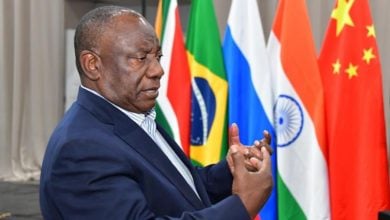A series of secret Pentagon documents have come to light in recent days that has sent the U.S. political and military establishment into a state of panicked damage control. The documents appear to reveal the internal assessments of Pentagon officials regarding the war in Ukraine, the extensive role of the United States in that conflict, and how even its close allies are not safe from U.S. spying.
The accuracy of the documents, along with how and why they were released, has been hotly disputed. There are competing theories relating to who stands to benefit from the release of this information, and how the content of the documents could have been modified according to the interests of the leaker. It is possible that some information in the leak is accurate and other information is not. But the reaction of governments the world over and reporting from a wide range of media outlets indicates that there is at least underlying truth to what is in the documents, giving us a rare chance to take a look into how the U.S. empire functions behind the scenes.
Much of the leak relates to Ukraine, and underscores how the war is a proxy conflict being directed by Washington. Documents relate how U.S. intelligence identified a Russian “assembly area” that was then bombarded by the Ukrainian armed forces, and how other U.S. intelligence sources have allowed Ukraine to anticipate Russian operations. The documents show the Pentagon deeply involved in the organization of Ukraine’s air defenses, with comprehensive knowledge allowing it to estimate when the country’s existing arsenal will exhaust itself and what targets would be exposed as a result.
As the war drags on, the United States has been finding it increasingly difficult to keep other countries in line with its policy of total support for the Ukrainian war effort. The leak includes information about how the government of South Korea dealt with U.S. pressure to export artillery shells amid the Ukraine war. Even the right-wing, pro-U.S. administration of president Yoon Suk Yeol was apparently deeply concerned that South Korean shells would be used directly by Ukraine, rather than going to third countries that were depleting their own artillery supplies with shipments to Ukraine. Other documents reveal that the government of Egypt was preparing to manufacture tens of thousands of rockets they intended to secretly sell to Russia. And others show how the United States was grappling with how to get Israel to ditch its policy of neutrality towards the war and sell weapons to Ukraine.
All three of these countries – South Korea, Egypt and Israel – have extremely close relationships with the United States. Approximately 30,000 U.S. troops are stationed in South Korea, and Egypt and Israel receive billions of dollars of military aid per year. Clearly, the supposed global consensus in support of the Ukrainian war effort that the U.S. government pretends exists is not so strong, and many nations around the world are not prepared to commit to the U.S. strategy of constant escalation.
This information, if it is accurate, also shows how the United States spies on its allies as well as its enemies. That communications between the president of South Korea and top aides, for example, are being intercepted by U.S. spy agencies undermines the alliances the United States has built over the years to bolster its empire.
For now, the Pentagon and the State Department are in damage control mode, seeking to contain the fallout of the leak. But after that, they intend to go back to business as usual – inflaming the most perilous conflicts in the world and spying on friend and foe alike. This is the inevitable behavior of a government determined to maintain a stranglehold over the whole world.






